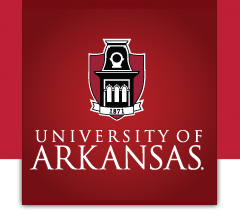Abstract
Copyright infringement through campus networks has become an increasingly troubling problem for higher education institutions across the nation for two reasons. First, the network infrastructure is being abused to the extent that high percentages of the traffic to and from the university are of illegal material. Second, much of these materials are illegal, so administrators must follow procedures and implement policies, which will identify the university when a member of the university violates the law. Throughout the nation, university administrators are taking different approaches to combat this new issue on campuses. In this study, the policies of the one hundred seventeen Division I Football institutions were critiqued. Some schools are taking a very relaxed approach and simply have a cursory statement in their policies mentioning students, faculty, and staff must follow all laws and policies. Others have taken a more active approach. The University of Arizona has the most comprehensive policies. They have included information on the Copyright Act, links to federal regulations, and a link to the university's policies on the use of peer-to-peer (P2P) programs. A great number of institutions are also complying with the Recording industry Association of America (RIAA) and disconnecting suspected violators from the campus network. However, this seems to be contradictory to our nation 's constitution which states individuals are "innocent until proven guilty." In the current system, which is common across the nation, it would seem as if users are "guilty until proven innocent." The availability of these P2P networks has resulted in a tremendous amount of legislation and trials to occur to protect the owners of the copyrights. New legislation or large numbers of suits are filed seemingly every week. Since last August, there have been almost 2,000 suits filed against individuals and several court cases against companies across the nation. In December, federal court of appeals ruled that service providers do not have to give copyright owners the personal information of people suspected of possessing copyrighted materials. This was a huge blow to owners as this was the primary means in which they were able to fight this growing issue. New issues that will face administrators will be very prevalent. One such process that students are beginning to use is called stream ripping. This allows users to tune into several internet radio stations at once and while doing so, a program converts the songs into a music file and stores it on the host computer. What is so different about this program is that it uses legal streams of music and then stores the songs. There is no sharing that takes place and network administrators cannot tell that there is anything illegal taking place. This problem is one that will not be solved soon. The emergence of new technologies and the increasing ability of students to find ways to break protectionist measure implemented by the copyright owners will continue to grow. While this thesis has been a comprehensive study of the legal history, institutional policies, and what might be in store in the near future, there would be aspects of this issue that could not be predicted. This is a very timely issue that will surely see much more spotlight.
Recommended Citation
Wendel, H. H. (2004). Musical Copyright Infringement and Policy Implementation at Higher Education Institutions. Inquiry: The University of Arkansas Undergraduate Research Journal, 5(1). Retrieved from https://scholarworks.uark.edu/inquiry/vol5/iss1/7




